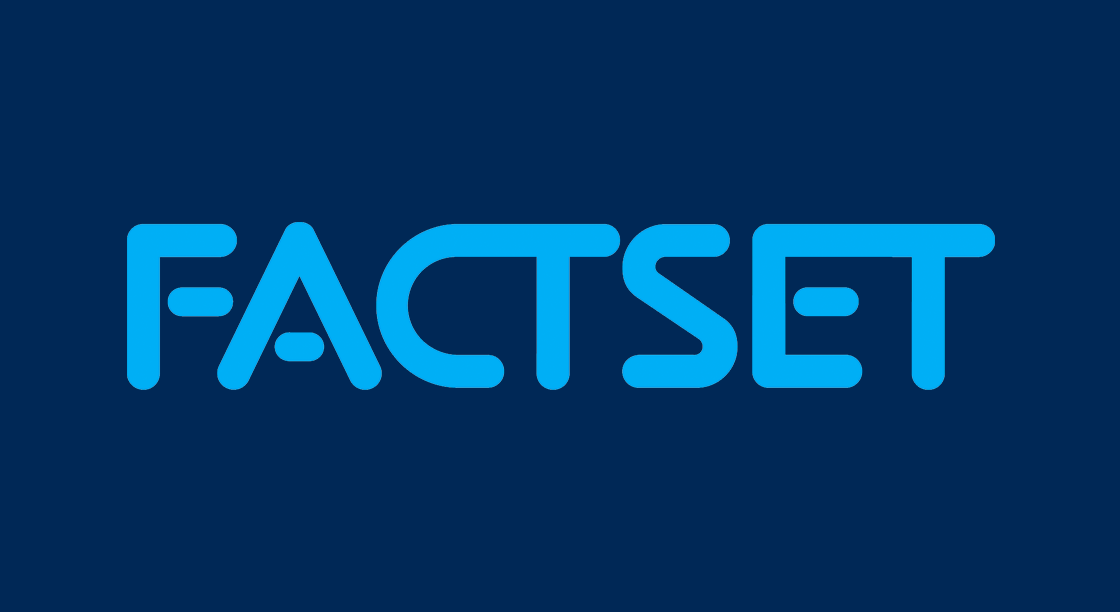
By Mackenzie Hargrave | October 19, 2022
Accusations of “greenwashing” loom over the sustainable finance and responsible investing space. It is an ugly shadow that suggests well-intentioned strategies are in fact ineffective because the information used to build ESG portfolios is fundamentally misleading.
Greenwashing is often raised in blanket claims that are hard to disprove, even though doing so is crucial to reaffirm the efficacy of sustainable finance. To do so, we need to be able to differentiate between real-world outcomes and marketing material that obscures the full scope of corporate impacts.
It is no secret that public corporations’ obligation to deliver shareholder value can conflict with safeguarding against negative outcomes for communities, employees, and the environment. For this reason, we turn to information reported by external stakeholders in local and national news, industry reports, and NGOs to capture corporate behavior.
This article explores information about external stakeholders using the Adverse Outcome Signal, which identifies companies with a high volume of very negative information related to ESG topics to measure whether corporate social responsibility policies are falling short.
Focusing on the topic of human rights and community relations, the analysis finds that the presence of a human rights policy does not safeguard against harmful impacts on the surrounding communities.
The EU Action Plan on Sustainable Finance has introduced extensive disclosure requirements for corporates and financial institutions. The disclosures require them to report reliable and comparable sustainability information, which in turn provides transparency to support informed decision-making and safeguard against misleading marketing.
The Sustainable Finance Disclosure Regulation (SFDR) component, aimed at financial firms, outlines metrics that financial market participants must report for all investments, regardless of the product or fund mandate. These disclosures termed “Principal Adverse Impacts,” range from greenhouse gas emissions to the number of workplace accidents. Among these metrics are flags noting whether investee companies have social, employee, or environmental policies in place.
The analysis below explores policies and outcomes for a universe of approximately 1,400 companies. This universe is defined by isolating companies that are covered by the FactSet SFDR Principal Adverse Impacts (PAI) dataset and have at least 25 ESG-related articles over a trailing 12-month period, as captured by the FactSet Truvalue SASB (Sustainability Accounting Standards Board) Scores dataset. The companies are heavily concentrated in the U.S., with a small minority based in Europe or the Middle East.
As the pie charts display, most companies in this universe have policies on human rights and OECD guidelines for Multinational Enterprises or UNGC principles in place.
Insight/2022/10.2022/10.19.2022_Social%20Washing/socialwashing1.png?width=844&height=423&name=socialwashing1.png)
Source: FactSet
Intuitively, companies are not incentivized to disclose the presence of human rights incidents publicly. This is reflected clearly in FactSet’s SFDR PAI data, which captures company-reported information when disclosed and does not estimate or assume the presence of human rights incidents in the absence of reporting.
Insight/2022/10.2022/10.19.2022_Social%20Washing/socialwashing2.png?width=841&height=673&name=socialwashing2.png)
Source: FactSet
Hopefully, the roll out of the CSRD (Corporate Sustainability Reporting Directive) will improve the transparency of corporate disclosures for companies subject to the mandate. In the meantime, and for companies not covered by CSRD, Truvalue Scores and Spotlight Events offer a timely, objective alternative to measuring corporate outcomes.
FactSet ESG experts explored the relationship between corporate policies and real-world outcomes by comparing companies with and without human rights policies. To measure outcomes, the team analyzed the FactSet Truvalue SASB Scores and Spotlight Events data related to the SASB Human Rights & Community Relations category (for brevity, we’ll refer to this as “Human Rights”). Truvalue data quantifies external stakeholder sentiment on ESG issues by measuring the volume and polarity of articles related to a given topic and company daily. Those articles are sourced from local and national news, NGOs, industry reports, and more.
In a nod to the ESG Activity Signal, the team assembled an Adverse Outcomes Signal that combines ESG volume and sentiment. In short, the Adverse Outcomes Signal ranks companies by those with the highest trailing 12-month article volume related to Human Rights issues and the most negative information related to Human Rights. Like the Activity Signal, the article volume is normalized by a measure of expected attention. In this case, trailing 12-month dollar trading volume is used as a proxy for expected attention. The ranked values of sentiment and information flow are combined to form the Adverse Outcomes Signal, which is used in the analysis. While the Adverse Outcomes Signal is calculated monthly, the underlying data captures new ESG information daily — offering near real-time insight that doesn’t rely on annual corporate reporting.
The Adverse Outcomes Signal surfaces companies with a high volume of information relative to expectations, along with very negative ESG polarity. Those within the first quintile (Q1) received the greatest amount of negative stakeholder attention related to Human Rights.
Once the human rights policy information is combined with the Adverse Outcomes Signal, the data suggests that human rights policies do not guard against negative human rights outcomes.
The chart below displays the percentage of companies in each Human Rights Adverse Outcomes quintile with and without human rights policies. The companies in Q1 have the highest volume of negative articles related to human rights issues. Companies in quintiles 2 through 5 have either decreasing volume or increasingly positive information related to human rights, so we can think of those quintiles as having fewer negative outcomes.
It's interesting to see that companies within each quintile have similar rates of human rights policies in place. This suggests that the presence of a human rights policy is not enough to protect a company from negative human rights outcomes.
Insight/2022/10.2022/10.19.2022_Social%20Washing/socialwashing3.png?width=813&height=543&name=socialwashing3.png)
Source: FactSet
The chart below shows the distribution of companies in the first quintile (most negative) by sector. The heavy concentration of companies in the Industrials, Utilities, and Consumer Services sectors is unique to the first quintile.
Insight/2022/10.2022/10.19.2022_Social%20Washing/socialwashing4.png?width=811&height=649&name=socialwashing4.png)
Source: FactSet
The table below shows the top three sectors by company count in the remaining quintiles.
|
Quintile |
Top Three Sectors by Company Count |
|
Q2 |
Industrials, Utilities, Technology |
|
Q3 |
Technology, Consumer Non-Cyclicals, Consumer Services |
|
Q4 |
Technology, Consumer Non-Cyclicals, Finance |
|
Q5 |
Finance, Technology, Consumer Non-Cyclicals |
The FactSet ESG team took a closer look at companies in the first quintile to understand the nature of the negative information picked up by the Adverse Outcome Signal.
Adverse outcomes emerged in different ways depending on the company. In some cases, prominent human rights events are identified by a cluster of articles related to the same issue and published in a short time frame, termed a Spotlight Event. In other cases, slow leaking negative information is spread over a longer time period, so it does not culminate into an algorithmically detected Spotlight Event. Instead, it is tracked by the longer-term volume and sentiment indicators and can be viewed within the FactSet Truvalue Platform.
The Human Rights Spotlights associated with Airbnb (ABNB-US) reveal a shared theme; the company’s ongoing business operations in territories where systematic human rights violations persist.
In December 2020, a Spotlight was created from articles raising concerns about the company’s listings in the occupied territories of Palestine, stating that the tourist industry is being supported at the expense of Palestinian rights and livelihoods.
Similarly, in February 2022, the company faced similar criticism over its rentals in Tibet and Xinjiang where China is accused of human rights abuses, forced labor, and forced cultural assimilation. Even before this, a January 2022 Spotlight offered a leading indicator of the storms ahead for Airbnb. The Spotlight detailed a U.S. Congress letter questioning the company’s commitment to human rights and anti-discrimination in the country.
Insight/2022/10.2022/10.19.2022_Social%20Washing/socialwashing5.png?width=1288&height=640&name=socialwashing5.png)
Source: FactSet Truvalue Platform
In some cases, slow leaking articles foreshadow subsequent negative events as they garner stakeholder attention. Tetra Tech (TTEK-US) is a prime example of this. Between March 2021 and April 2022, Tetra Tech had two Spotlight events related to the lawsuits filed against the company over toxic waste in San Francisco. The Spotlights reveal a settlement awarded to homeowners at the San Francisco Shipyard, a housing development located on the site of the former Hunters Point Navy Shipyard. The San Francisco Examiner reported that Hunters Point was exposed to radiation when it was used as a radiological defense laboratory and Tetra Tech did not properly rid the site of toxic materials when it was hired to clean it.
Insight/2022/10.2022/10.19.2022_Social%20Washing/socialwashing6.png?width=1085&height=550&name=socialwashing6.png)
Source: FactSet Truvalue Platform
However, earlier in the year, Truvalue captured an article in July detailing the activists’ charges that the company was “digging up radioactive dirt in its plans to build upscale housing on the site of the old Hunters Point Naval Shipyard,” according to The Final Call (Charlene Muhammad 2020, par. 1). This led to radiation poising that was attributed as the source of cancer diagnoses, high asthma rates, lung problems, and bloody noses from residents and students at nearby schools.
Tetra Tech has a human rights policy in place and is a member of the UN Global Compact.
Even as corporate disclosure of ESG information is in the process of becoming mandated or standardized, like the works of EU, ISSB, SEC, we may still see instances where corporations omit wrongdoing or focus solely on the relationship between ESG topics and financial performance. For this reason, external stakeholder insights—such as those referenced above—are critical to holding corporations accountable for their sustainability claims and introducing transparency into corporate behavior.
Jacqulin Kuk, Senior Manager, ESG Client Solutions, also contributed to this article.
This blog post is for informational purposes only. The information contained in this blog post is not legal, tax, or investment advice. FactSet does not endorse or recommend any investments and assumes no liability for any consequence relating directly or indirectly to any action or inaction taken based on the information contained in this article.
Ms. Mackenzie Hargrave is Senior Principal Product Manager for ESG Solutions at FactSet. In this role, she assists in the execution of FactSet’s ESG strategy through collaboration with FactSet’s product development, sales, marketing, and strategy teams. She and her colleagues aim to power the next generation of ESG strategies with innovative data and workflow solutions. Ms. Hargrave earned a B.S. in Environmental Economics from Colgate University.

Do Green Bonds Mitigate Climate Transition Risks for Investors?
Green bonds have emerged as a growing debt instrument for some asset managers with estimates of more than $2 trillion in issuance...
By FactSet Insight | ESG

Electric Utility Sector: Balancing AI-Driven Growth and Carbon Emission Challenges
The increasing energy demand driven by AI and data centers further strengthens the outlook for electricity utility companies.
By Jacqulin Kuk | ESG

Surveying the Cement Decarbonization Landscape
In this Insight we delve into the structure of the domestic cement industry, outline the energy use in cement production, and...
By Tom Abrams, CFA | ESG

22 Countries Pledge at COP28 to Triple Nuclear Power
The 28th annual United Nations Climate Change Conference (COP28) discussed nuclear energy as a potential solution for clean...
The information contained in this article is not investment advice. FactSet does not endorse or recommend any investments and assumes no liability for any consequence relating directly or indirectly to any action or inaction taken based on the information contained in this article.
